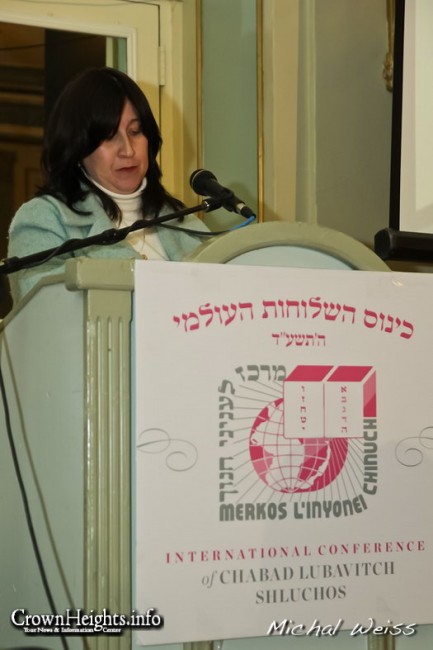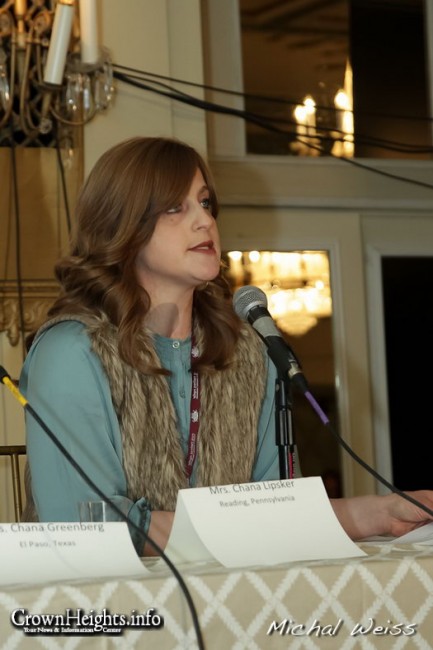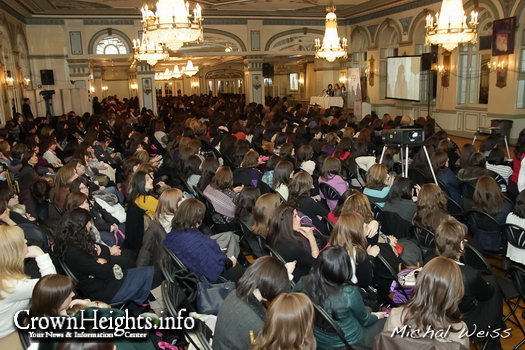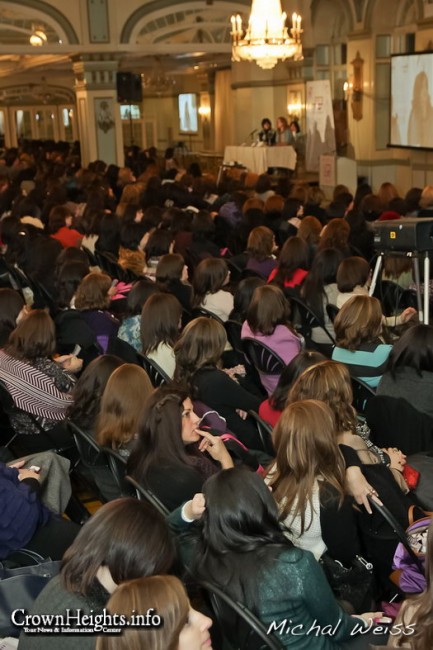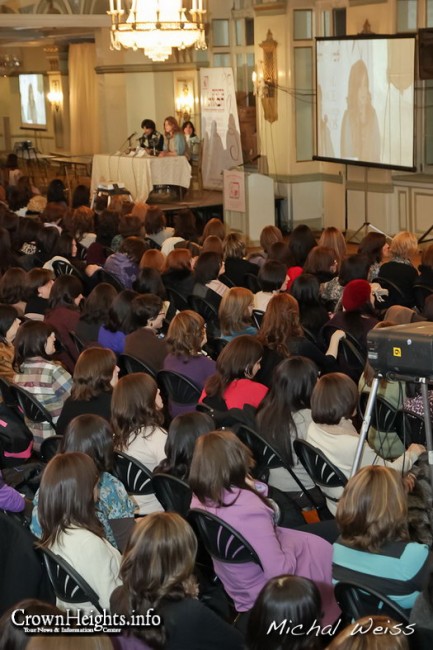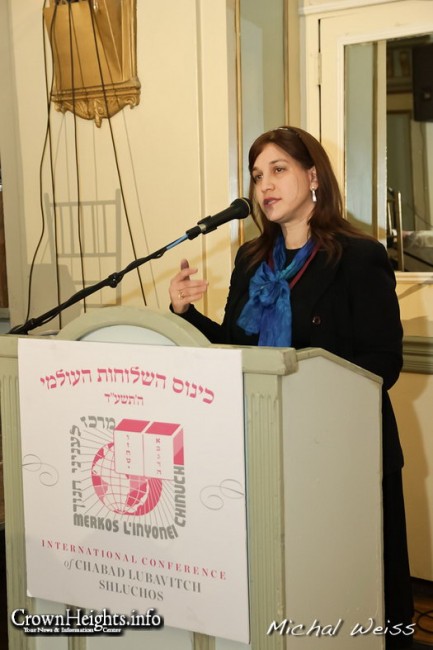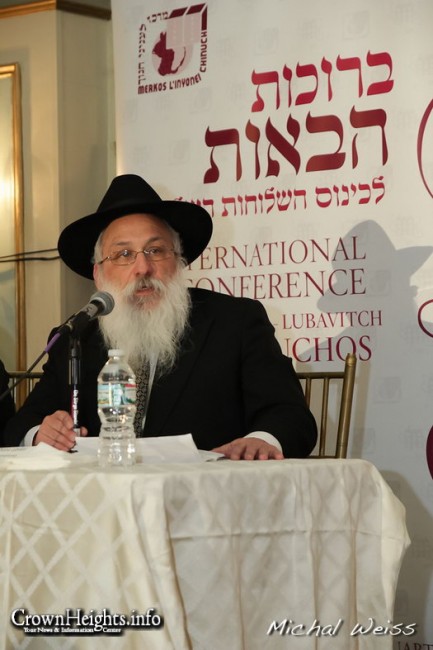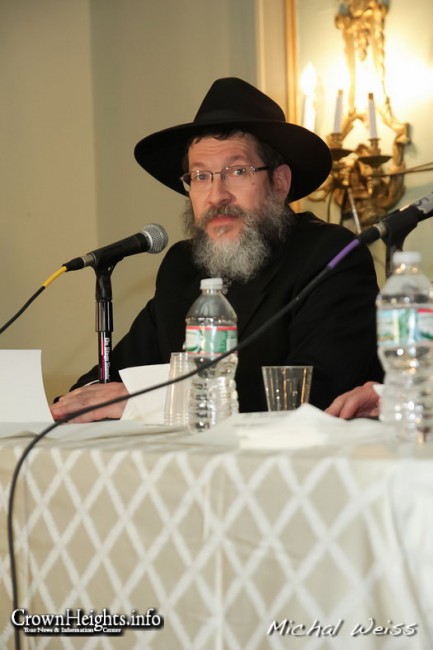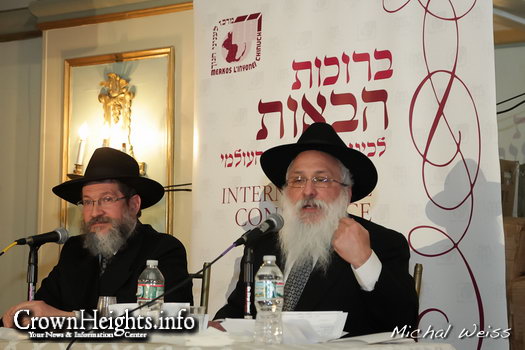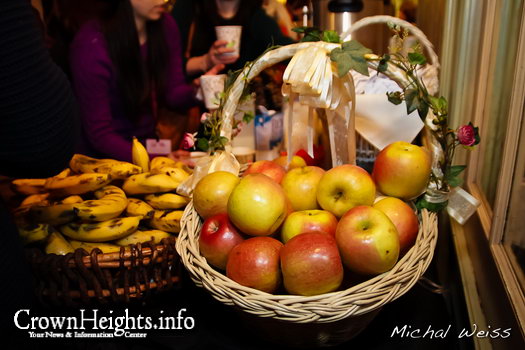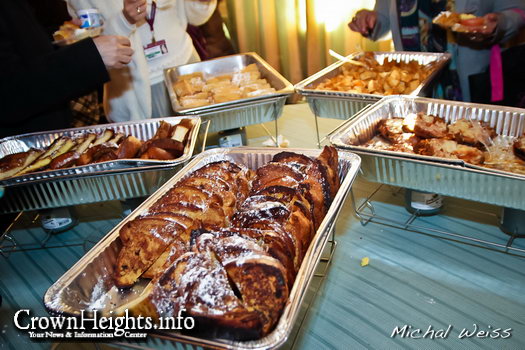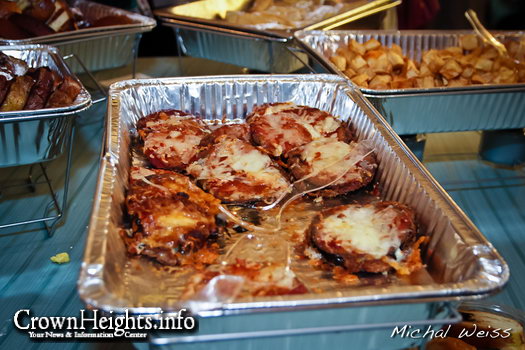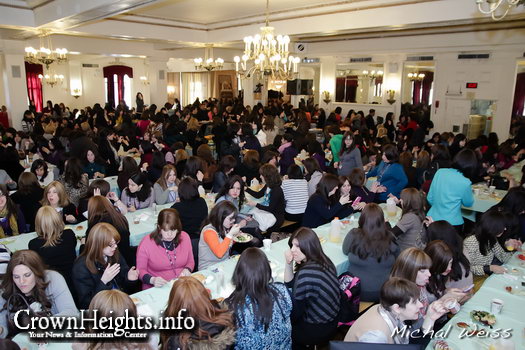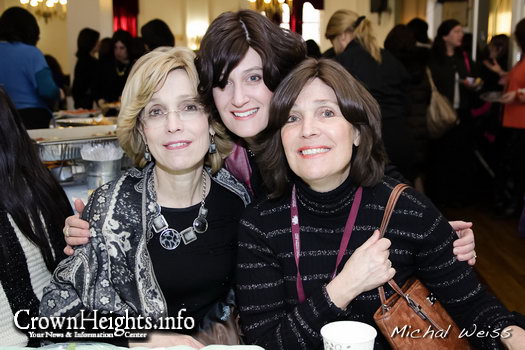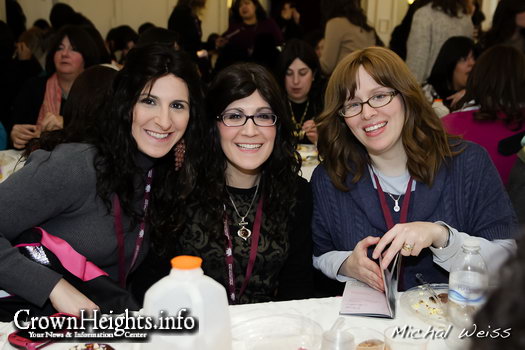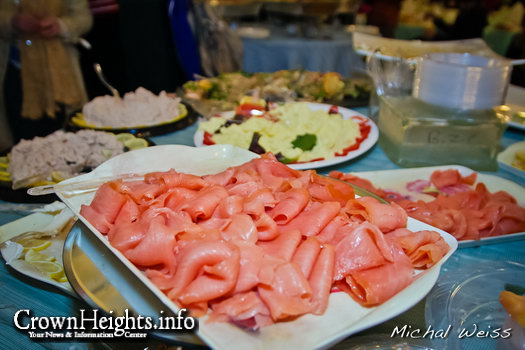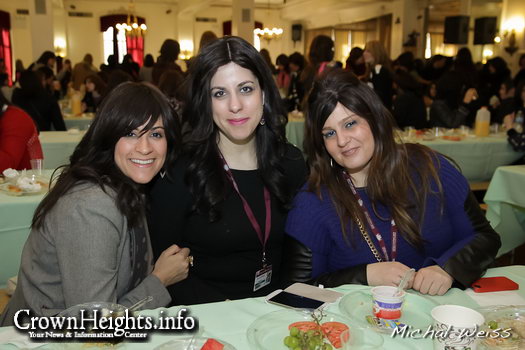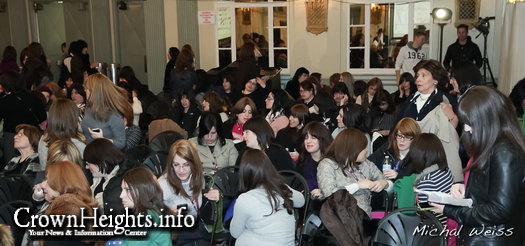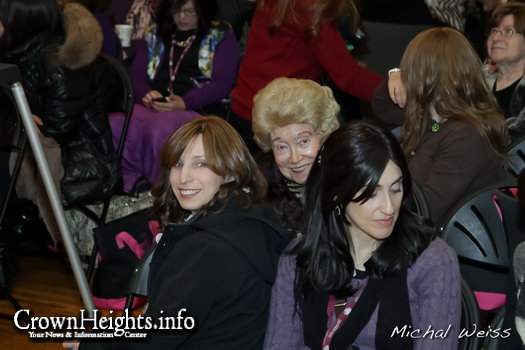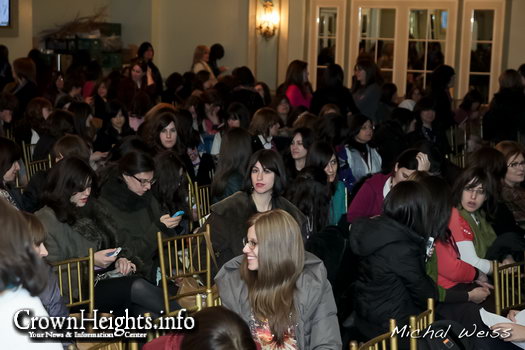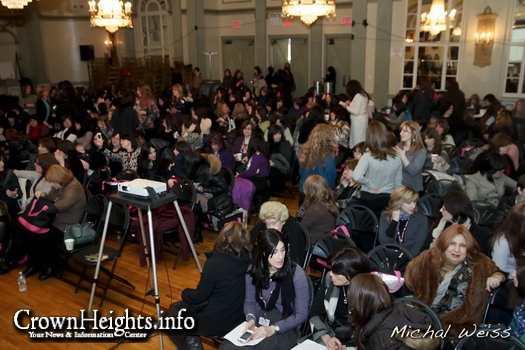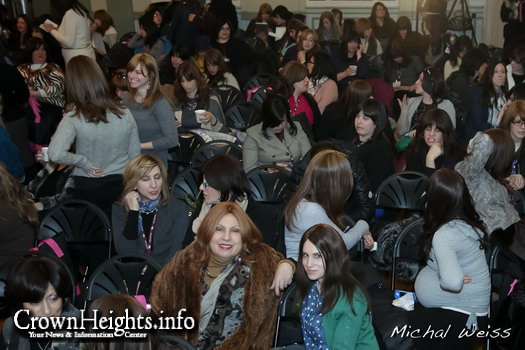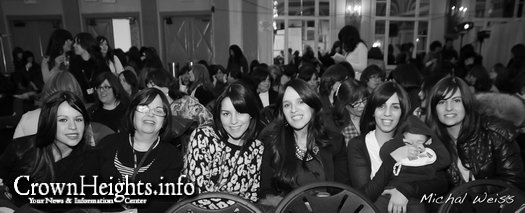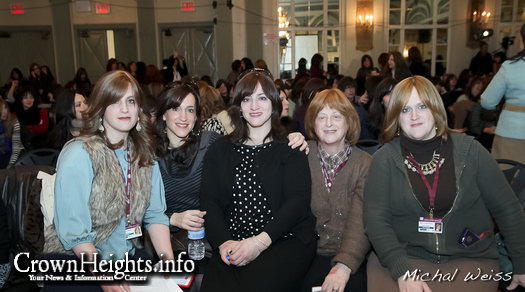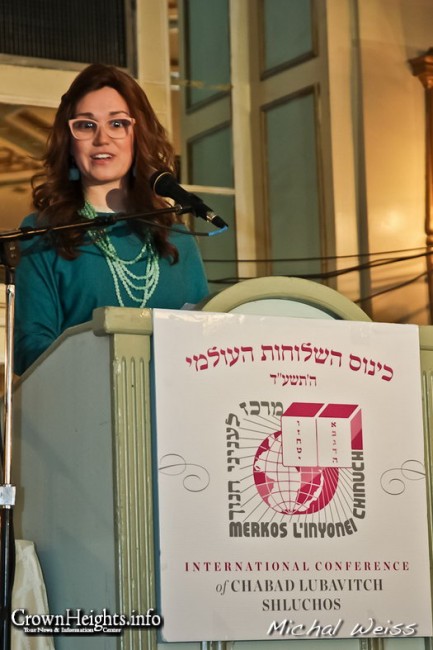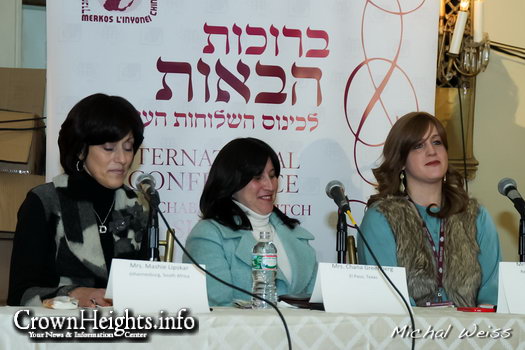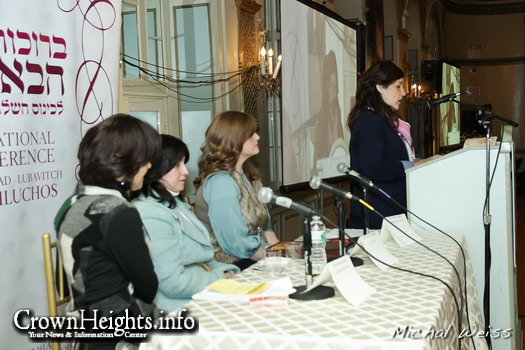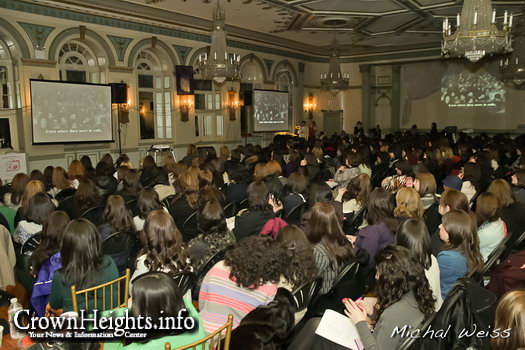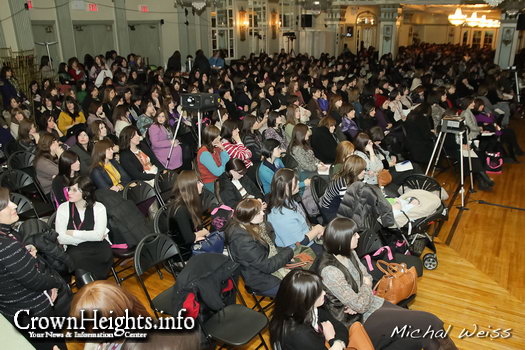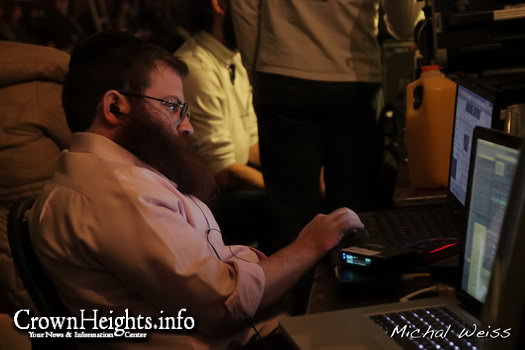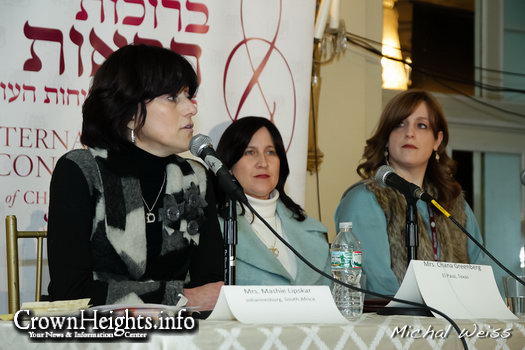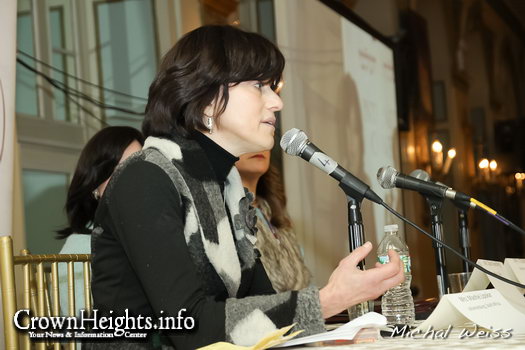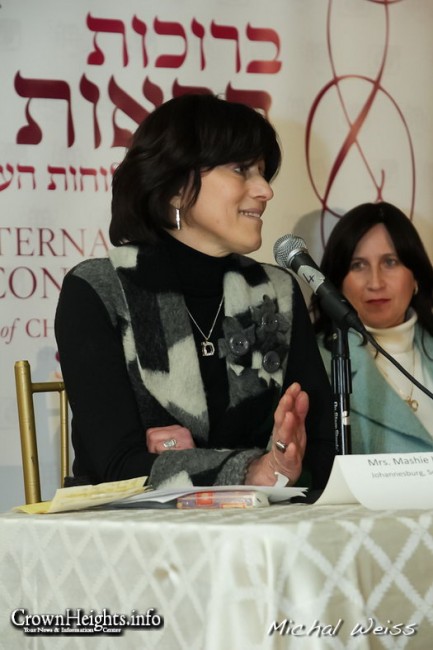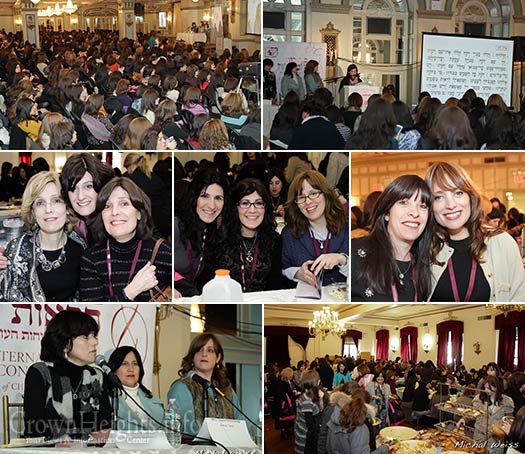
Shluchos Recharge, Hone Their Skills, Goals and Friendships
Rivky Klein was watching the weather carefully this week. There was a snowstorm in New York City—along the entire northeast coast, to be exact—but Klein, of Chabad-Lubavitch of Tennessee in Memphis, didn’t want that to derail her plans. She and more than 2,000 other women are all signed up and ready to participate in an annual program—the International Convention of Chabad-Lubavitch Shluchos — designed to rejuvenate and inspire the thousands of women who serve Chabad centers around the world.
At home, they educate children in their respective communities, lead programs for women, volunteer and offer help to families in need, welcome guests into their homes for Shabbat meals and so much more.
But this weekend, they get to come together with friends, relatives and women who identify with their experiences and share their challenges.
It all started on Wednesday with a dinner event, followed over the next few days by a trip to the Ohel—the resting places of theRebbe, Rabbi Menachem M. Schneerson, of righteous memory and his father-in-law, theSixth Lubavitcher Rebbe, Rabbi Yosef Yitzchak Schneersohn, of righteous memory. There will be workshops, meals, a resource fair and Shabbat programming. A huge banquet event takes place on Sunday night—to be streamed live on Jewish.tv, the multimedia portal of Chabad.org—and then a closing learning session will mark the end of the convention, known as the Kinus Hashluchos, on Monday.
“I just like being in the atmosphere of it—talking to old friends, being on a little vacation and seeing other people in the same shoes as me, realizing I’m not alone, and going back and being recharged,” says Klein. “Being a part of everything is just a great feeling.”
It’s also a chance to discover the ripple effect that Chabad centers everywhere have on their communities. The women share stories of individuals who have come for meals or have otherwise gotten involved, and maybe moved from one place to another, taking part in Chabad events and classes in their new hometown because of their previous experiences. “When you meet the [other emissaries], you get regards from these people—it’s pretty cool. It’s a small world,” says Klein.
She remembers going 18 years ago, when the event was much smaller; the numbers have since tripled and quadrupled. And these days, younger women come to her for ideas.
It’s humbling, she acknowledges, adding that she’s glad she can be of help to somebody else: “I’m inspired by them—that they’re inspired to go out and live this kind of life.”
Changing the World
Rivky Chazanow, of Chabad of the Big Island in Kailua Kona, Hawaii, will attend the women’s weekend for her third time. “I think as [emissaries] from a remote place, we need the Kinus even more, to recharge and to get the strength we need,” she says. From connecting with her peers to celebrating at the annual banquet, she affirms that the experience is greater than the sum of its parts.
And when she returns home, she plans to tell all who come to her women’s programs about it.
“What I hope to bring back is just the idea that Chabad is around the world, and it’s a powerful organization,” she says. “To them, they think we’re one in a million. We try to show them how [emissaries] are an army and how they’re changing the world.”
Chazanow’s mother, Pearl Krasnjanskyof Chabad of Hawaii in Honolulu, has been going to the Kinus since it first began in 1991 and looks forward to the events, as well as to spending a few days with her kids. Four of her seven children live in New York, and this time of the year promises to be less hectic than when the family gets together on Jewish holidays.
As for the programming itself, she says she usually comes away with a few lines from the sessions that resonate with her throughout the year. “We all have our financial struggles, our spiritual struggles, our communal struggles,” she says. “And to hear other people talking about them as well is just very empowering. It gives you the confidence to go forward with your head held high.”
‘Spiritual, Practical and Motivational’
Chaya Perman of Chabad of Venezuela was all set to make a last-minute decision about attending the Kinus, family responsibilities permitting. She was at the very first one as well and has made it back every chance she has had. Several decades ago, it was just a few hundred women—a core group she said had the “amazing privilege” of being addressed by the Rebbe during the conventions’ early years.
Perman has also been involved in helping plan this year’s Kinus as one of five executive committee members. “I think the real beauty for me is when I see the [emissaries]—girls from different parts of the world getting together and supporting each other, being there for each other and giving each other the tools they need in order to continue to do the work that they do.”
This year’s programming revolves around the theme of bringing light out of darkness. New workshops will focus on large communities and small communities; some will be held in Hebrew, and one will be held for Spanish-speaking emissaries; and another will be geared to families of children with special needs.
“My hope would be that they come away with inspiration … strengthening their skills and learning tools that they can use in their community,” says Perman. “I like to see the spiritual, the practical and the motivational.”
Chani Bukiet, of Chabad of West Boca Raton, Fla., packed for New York after spending the yahrtzeit (anniversary of passing) of the Rebbetzin—Chaya Mushka Schneerson, of righteous memory—with women from her community. In fact, the Kinus is timed to coincide with that date, 22 Shevat, in memory of the Rebbetzin, who had the utmost concern for and interest in the work of Chabad emissaries.
Bukiet’s flight, at 6 o’clock in the morning, landed in the cold and snow, but she was expecting to be warmed up by her colleagues. She looks forward to meeting up with women she has met over the years, as well as catching up with family from Israel, Russia and England.
“Being face-to-face, you really feel the energy you don’t get when you’re so far away,” she says. “I think you can tap into that energy if you go every year and take it back with you.”
Also, her Chabad center has just opened a new mikvah in Boca Raton, so she will be seeking inspiration she can put to work as she moves that project forward in her community, which includes a mix of seniors and young families in the heavily populated South Florida Jewish enclave.
Mussi Levertov works as an administrator at Chabad Jewish Center of Santa Fe, N.M., which is run by her parents, Rabbi Berel and Devorah Leah Levertov. She has arranged to volunteer at the Kinus and to attend workshops.
There are programs as well for the daughters of these women, who start learning at an early age what it means to serve as a Chabad emissary, fulfilling the vision and ideals of the Rebbe.
“Every year, it’s exciting,” says Levertov. “It’s when everybody comes to New York, and you get to see everyone and get to be in a place where it’s all happening.”
Photos by Michal Weiss

